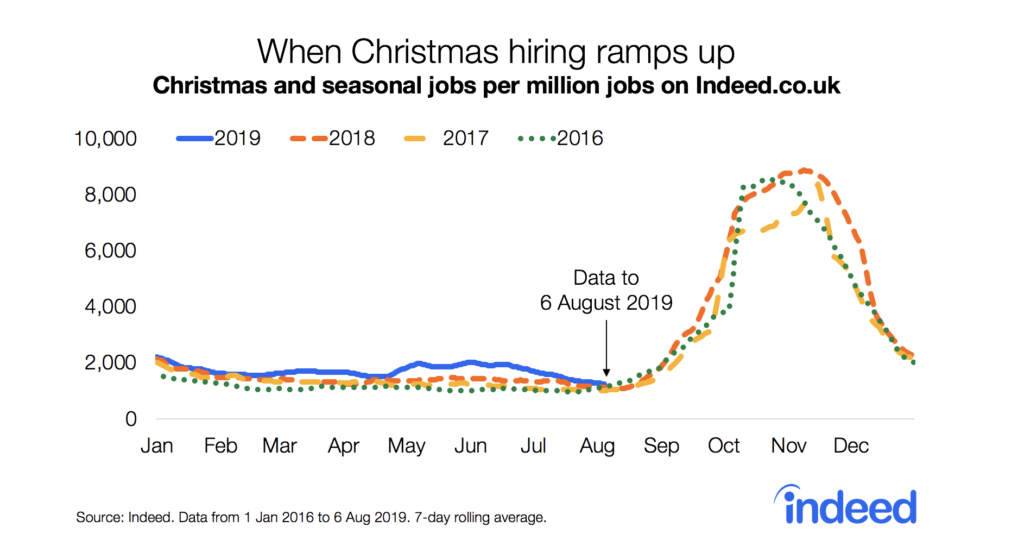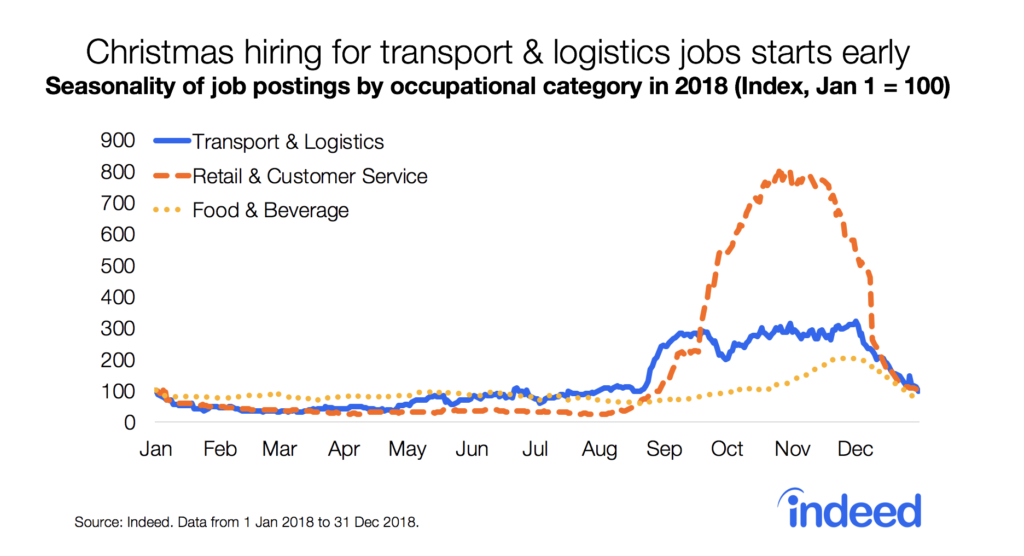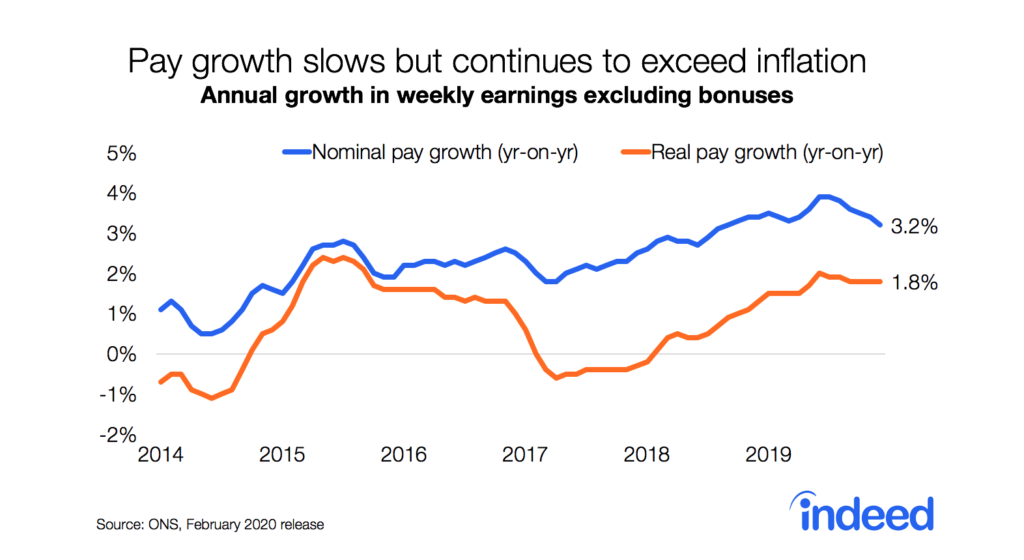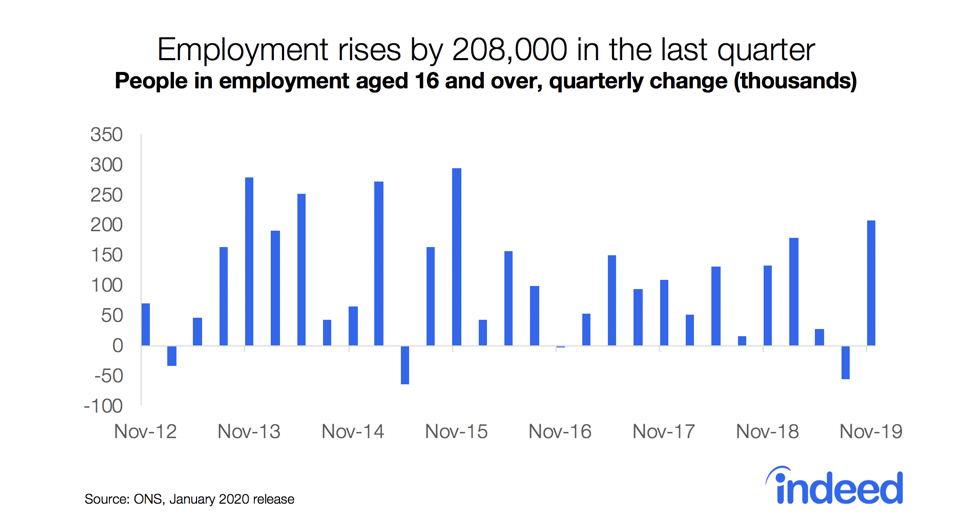Key points
- Postings for Christmas jobs start to increase at the end of August and ramp up rapidly in September and October.
- Hiring for transport and logistics jobs starts first, followed by positions in retail and food and beverage service.
- Christmas jobs posted in August and September receive more clicks than those posted later in the year, so employers may benefit by setting their seasonal hiring plans early.
Every year shoppers flock to clicks and bricks retailers in the run-up to Christmas and then afterward to take advantage of Christmas sales. Data from the Office for National Statistics shows that retail sales excluding fuel amounted to £47 billion in December 2018, a staggering 55% more than in an average month that year. We looked at hundreds of thousands of online job postings on Indeed to see how this seasonal spending increase translated into hiring, and what kinds of jobs employers advertised first.
Christmas hiring starts before summer is out
Postings for Christmas jobs typically start to ramp up at the end of the summer. Starting in late August, jobs with words like ‘Christmas’, ‘seasonal’ or ‘Santa’ in the title capture a rising share of all job postings on Indeed. After this initial burst, postings then tend to soar in September and October before reaching a peak in November.
Many of these jobs have start dates many weeks, or even months, before Christmas as businesses prepare for the peak shopping season. That period increasingly kicks off as early as November with Black Friday sales, as well as the Christmas party season in December.
Thinking of Christmas during the summer might sound premature, but employers planning to hire for seasonal roles frequently try to get their ducks in a row, with job descriptions, roles and locations they want to hire for, as well as competitive salaries — important in a tight labour market — already confirmed and advertised.
If employers turn their attention to Christmas in the summer, then jobseekers aren’t far behind. People interested in seasonal roles can get a jump by searching as early as September to guarantee that more openings are available and avoid waiting until the last moment to look.

What kinds of positions tend to open first?
To prepare for the Christmas shopping spree, retailers and customer service centres post the majority of their seasonal jobs in October and November. But before staff in shops and shopping centres can begin putting up decorations, stacking shelves and dealing with customer queries, products must be delivered. For that reason, seasonal hiring in transportation and logistics — drivers, warehouse workers, and logistics managers, for example — picks up much earlier than hiring for customer-facing retail positions. Employers looking for recruits to work delivery routes and warehouses may be able to get an edge on the competition by advertising early. Hospitality jobs for chefs, waiters and bar staff are less seasonal and peak even later than retail, perhaps because the Christmas party and travel season doesn’t start in earnest until December.

The early job gets the clicks
Employers prepared at the end of the summer may be able to hire more quickly than those that wait longer to post Christmas jobs. In 2018, the average number of clicks a Christmas or seasonal job received was highest in late August and September. Christmas jobs advertised in August received an average of 20 clicks, while those advertised in September received 26 clicks.
While jobseekers continue to be active by searching and applying for Christmas jobs throughout the autumn months, average jobseeker interest is lower, with an average of 16 clicks per Christmas job posting in October and 15 in November. If we take clicks as a measure of the supply of potential candidates for each job, it’s the early posting that is likely to be easiest to fill in the run-up to the holiday season — unless, of course, all employers catch on to this trend this year and start the recruitment process earlier.
Methodology
We define Christmas job postings as those with one or more holiday-related term in the job title, including, but not limited to, ‘holiday’, ‘seasonal’ and ‘Christmas’.






